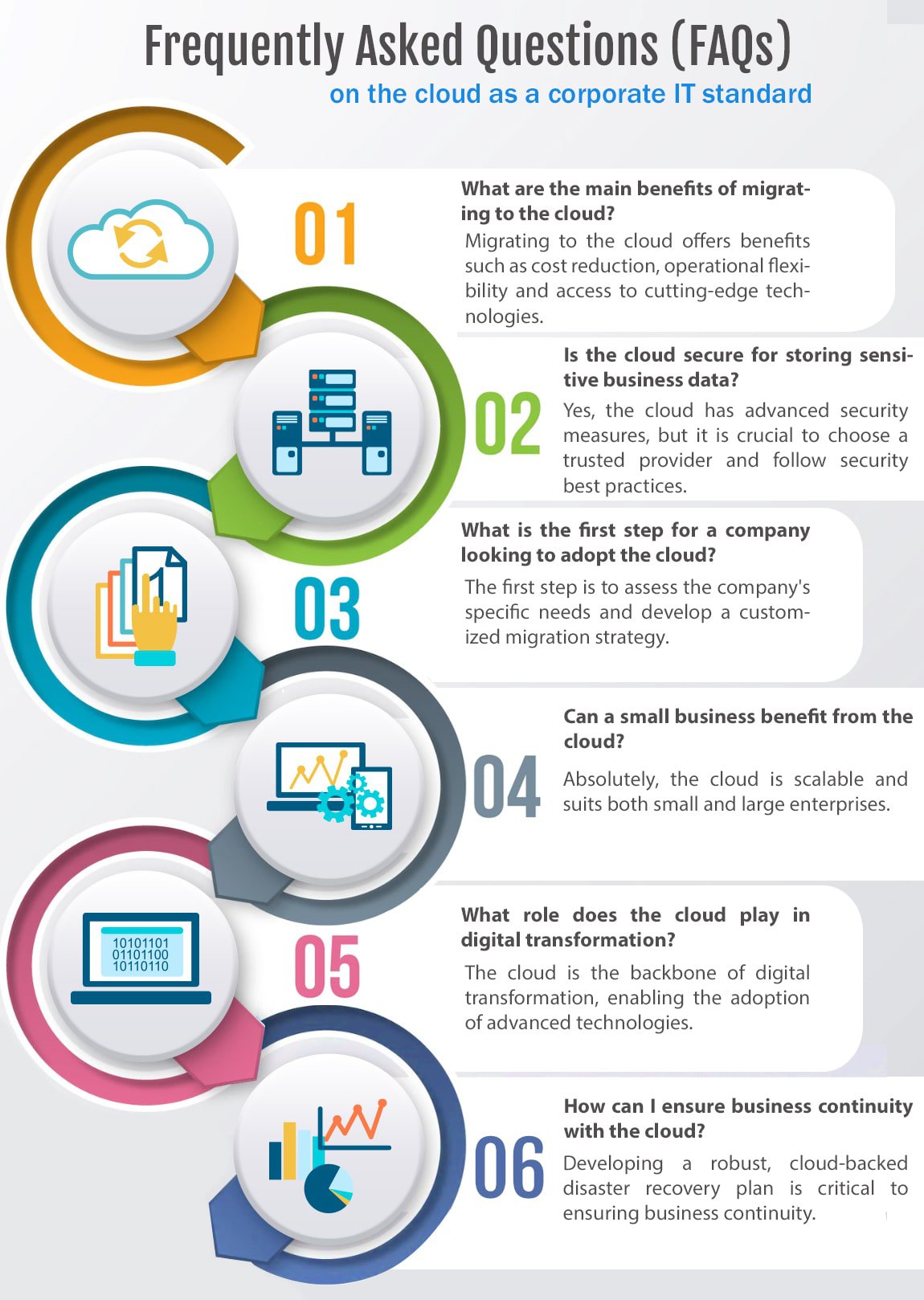
Portafolio de Páginas Web
Diseño Web Profesional
Cloud becomes
THE CORPORATE IT STANDARD
Discover why the cloud has become the corporate computing standard and how this transformation
is shaping the future of business. Gain valuable insights into its benefits and challenges.
In today’s digital age, technology is advancing by leaps and bounds, and one of the most significant transformations in the business world is the massive adoption of the cloud.
In this article, we will explore why “Cloud is becoming the corporate computing standard” and how this revolution is changing the way businesses operate.
Join us on this journey to discover the benefits, challenges and implications of this technology trend.

The Cloud as an Enterprise Solution
The cloud is much more than a remote storage location.
It is an end-to-end enterprise solution that offers scalability, flexibility and efficiency.
Enterprises are turning to the cloud to:
Optimize Costs: The cloud eliminates the need for investment in expensive hardware and allows companies to pay only for the resources they use.
Facilitate Collaboration: With the cloud, teams can collaborate in real time from anywhere in the world, improving productivity.
Improve Security: Cloud service providers invest in advanced security measures, which effectively protects business data.
Scalability: Companies can scale their resources according to changing market demands seamlessly.
Digital Transformation
The cloud has enabled digital transformation across industries. Enterprises can adopt innovative technologies such as the Internet of Things (IoT), artificial intelligence (AI) and advanced data analytics seamlessly due to the flexibility of the cloud.
Leading the Market
Today, leading companies are embracing the cloud as the computing standard. Technology giants such as Amazon, Microsoft and Google offer world-class cloud services that support critical business operations.
Cloud and Business Continuity
The cloud also plays a critical role in business continuity. It enables the creation of effective disaster recovery plans, ensuring that companies can remain operational even in adverse situations.
Challenges
While the cloud offers myriad advantages, it also presents challenges. These include concerns about data security, dependence on third-party vendors, and the need to train employees on new technologies.

Conclusion
In summary, “The cloud is becoming the corporate computing standard” because of its ability
to drive efficiency, innovation and security in enterprises.
If you are considering cloud adoption in your business, it is important to understand its advantages and challenges.
The cloud is transforming the way businesses operate and lead in an increasingly digital world.
Take advantage of this technological revolution to drive your company’s growth and success.

